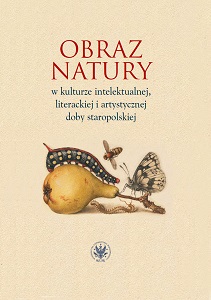Akceptacja, podziw, lęk. Natura w twórczości Franciszka Karpińskiego
Acceptance, Admiration, Fear. Nature in Franciszek Karpiński’s Works
Author(s): Tomasz Chachulski
Subject(s): Cultural history, Studies of Literature, Theory of Literature
Published by: Wydawnictwa Uniwersytetu Warszawskiego
Keywords: Franciszek Karpiński; Enlightenment poetry; nature in poetry; the book of nature; aesthetics of nature; Jacques Delille; Georges Buffon; Enlightenment aesthetics
Summary/Abstract: Franciszek Karpiński in his works refers to almost all meanings of “nature”, which were used in the 18th century: he perceives nature as a constellation of specific traits, as a characteristic of a person or a thing, as the opposition to culture. Karpiński’s poems demonstrate how he uses these terms. Certain patterns emerge from it: nature is the source of self-knowledge, it signifies what is primeval, authentic and true – not beautiful but ethical. Nature is the world reluctant to suffering, the space of sensitivity and harmony. Alienation and evil are the consequence of crossing nature’s boundaries. The beauty of the world (“the book of nature”, “the spectacle of nature”) is admired by the lyrical subject. The categories Karpiński uses when describing the perfection of the world are taken from Denis Diderot’s works; he also uses – through Jacques Delille’s “Gardens” – George Buffon’s “Natural History”, which he himself translated in 1783. In his later works, probably because of his translation of “The Book of Psalms”, Karpiński underlines the unconditioned submission of nature to the Creator. The term “God of nature” is also used in the Psalms (1786) and the Pious Hymns (1792).
Book: Obraz natury w kulturze intelektualnej, literackiej i artystycznej doby staropolskiej
- Page Range: 344-353
- Page Count: 10
- Publication Year: 2020
- Language: Polish
- Content File-PDF

